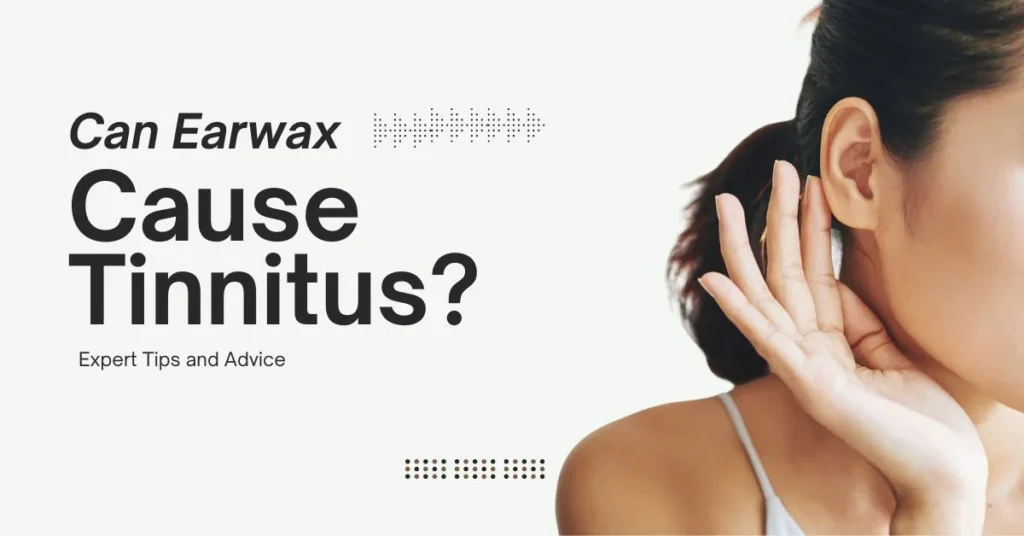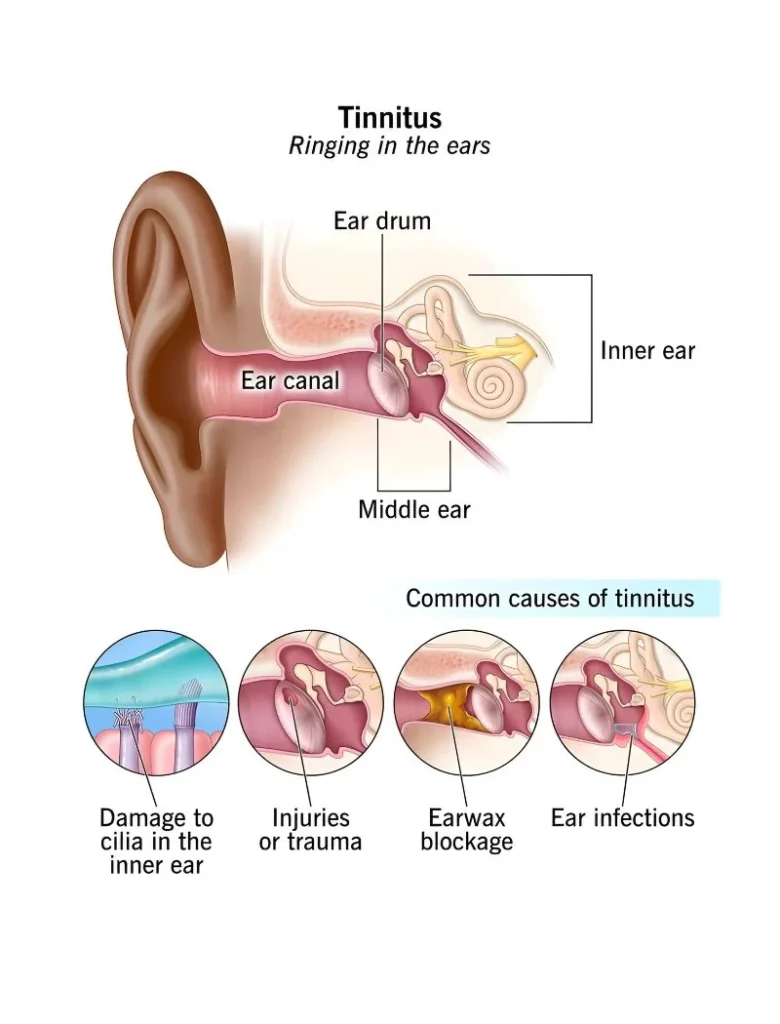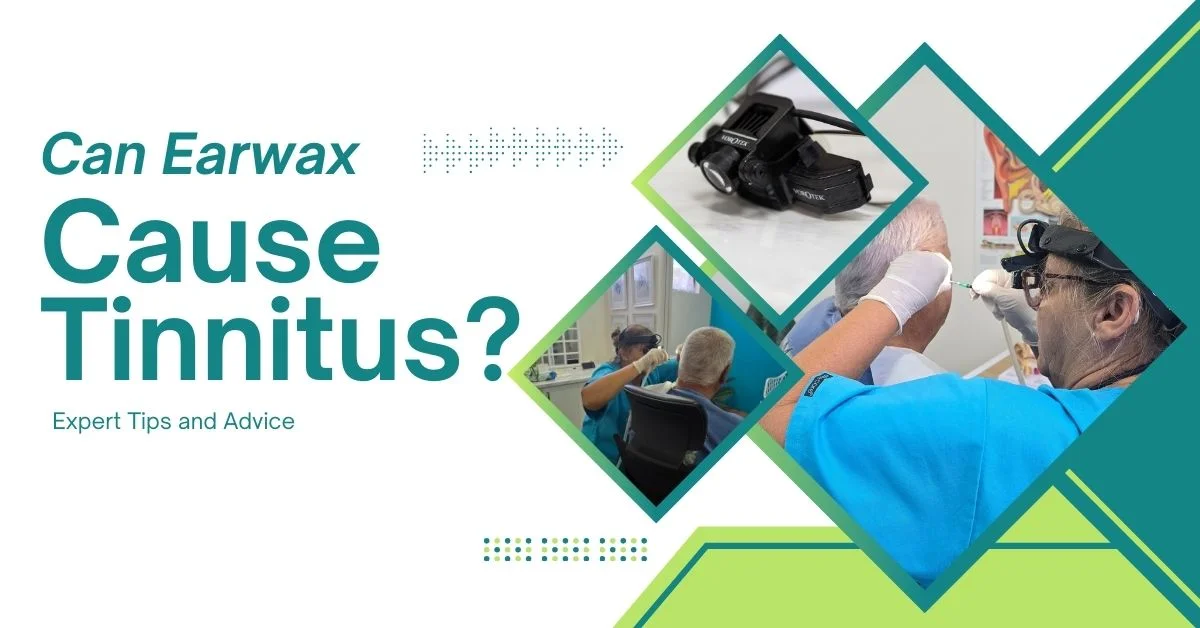Tinnitus is a common condition characterized by the perception of sounds—such as ringing, buzzing, or hissing—that aren’t actually present in the environment. It’s a troubling issue for millions of individuals around the globe. While various causes contribute to this condition, one lesser-known but significant factor is earwax buildup. In this blog post, we will explore how earwax buildup can trigger tinnitus, when it becomes a concern, and what steps you can take to address it safely.

Tinnitus refers to the experience of hearing sounds that do not have an external origin. People with tinnitus often describe the sounds as ringing, buzzing, hissing, or even a roaring noise in their ears. It is a common issue, affecting approximately 10-25% of adults globally. While tinnitus can be temporary, it may also persist and worsen over time for some individuals.
Tinnitus is commonly associated with factors such as hearing loss, prolonged exposure to loud sounds, certain medications, and sometimes even emotional stress. However, in some cases, seemingly unrelated conditions such as earwax buildup may also contribute to the onset or exacerbation of tinnitus.
Earwax, or cerumen, is a natural secretion in the ear that serves to lubricate the ear canal, protect against dirt, dust, and bacteria, and prevent infections.
Excessive earwax buildup can cause blockages in the ear canal. When the earwax obstructs the canal, it can exert pressure on the eardrum and inner ear, which may impact hearing and trigger the sensation of tinnitus. The blockage may result in a distorted perception of sound, leading to the constant ringing or buzzing sensation experienced in tinnitus.
Obstruction of Sound Transmission: When earwax builds up, it can prevent sound waves from properly reaching the inner ear, altering how sounds are processed and perceived. This interference can contribute to the onset of tinnitus symptoms.
Pressure on the Eardrum: Excessive earwax can place pressure on the eardrum, causing discomfort, pain, and potentially triggering tinnitus.

If you suspect that earwax buildup may be causing or worsening your tinnitus, look for the following signs:
Hearing Loss or Deteriorated Hearing: Difficulty hearing or muffled sounds can be caused by a blockage.
Sudden Onset of Tinnitus Symptoms: If you notice a sudden appearance or worsening of tinnitus symptoms, earwax could be a contributing factor.

If you’re experiencing these symptoms, it’s essential to consult a healthcare professional for an accurate diagnosis and to rule out other potential causes.
While earwax is necessary for ear health, cleaning it improperly can push the wax deeper into the ear canal, causing further blockage and potential damage. It’s best to avoid using cotton buds or other objects to remove earwax.
Ear Drops: Over-the-counter ear drops, such as those with mineral oil, hydrogen peroxide, or saline, can help soften earwax. These solutions assist in loosening the wax, allowing it to clear from the ear on its own over time.
Professional Removal: If you suspect a significant buildup, seek professional help. Healthcare providers can safely remove earwax using specialized tools, preventing injury to the ear canal or eardrum.
If you’ve tried home treatments but still experience discomfort or tinnitus, it may be time to consult a healthcare professional. In some cases, impacted earwax may require manual removal at a clinic or doctor’s office. A doctor can also rule out other causes of tinnitus, such as infections or underlying hearing conditions.
In many cases, once the earwax is removed, tinnitus symptoms subside. However, if tinnitus persists after earwax removal, it may indicate that other underlying conditions are at play, and further medical evaluation is necessary.
To minimize the risk of earwax buildup and associated tinnitus:
Avoid Over-Cleaning Your Ears: Earwax is self-cleaning; over-cleaning can push wax deeper into the ear canal.
Regular Check-ups: If you are prone to earwax buildup, consider having your ears checked periodically by a healthcare professional.
Wear Ear Protection: If you’re often exposed to loud sounds, wearing earplugs can help shield your hearing and lower the likelihood of developing tinnitus.
Earwax buildup is a common cause of tinnitus that can often be treated with simple home remedies or professional removal. If left untreated, earwax buildup can result in hearing loss and ongoing tinnitus symptoms. If you feel discomfort or suspect earwax is causing your tinnitus, it’s crucial to seek the right treatment to prevent further issues.
Understanding the connection between earwax and tinnitus empowers you to take preventive measures and manage the condition effectively, improving both ear comfort and overall well-being. If tinnitus continues despite treatment, it’s advisable to consult a healthcare professional for additional solutions.
111 Bedford Rd, Andergrove QLD 4740
Monday – Friday
8:00 AM – 4:00PM
*Closed on Saturday & Sunday
111 Bedford Rd, Andergrove QLD 4740
Monday – Friday
8:00 AM – 4:00PM
*Closed on Saturday & Sunday
Copyright Mackay Ears | 2025. All rights reserved.